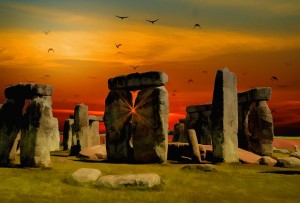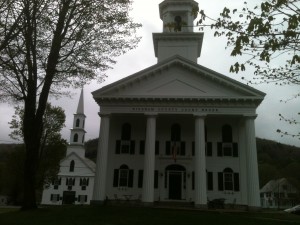
On Groundhog Day, I checked the news before I checked the weather. After months of political forecasting, I was more interested in what had happened in Iowa than what was going to happen in Punxsutawney, PA. Besides, weather and politics are local, and no matter whether Punxsutawney Phil sees his shadow or not, it’s still the middle of winter, albeit a mild one, up here in the north.
By the time I digested my eggs and toast with a side of news, the sun was up in southern Vermont, though evidently not in Groundhog Central, about five hundred miles to the southwest. The groundhog failed to see his shadow this morning, an event believed to indicate that spring is on its way.
Likewise, predictions of a Trump victory and a Sanders defeat failed to materialize. After months of speculation, Iowans caucused. Like the hype leading up to storms that veer out to sea, the forecasts for this event have been supplanted by facts, votes, delegates and a thinning field of contenders.
Having found the hard data from Iowa a relief after the preceding months of forecasts presented as news, I started to wonder if there was any data on the accuracy of Punxsutawney Phil.
I found lots.
The first written reference to Groundhog Day in America dates to 1841, and the newspaper in Punxsutawney has been promoting its resident rodent as the preeminent prognosticator since 1871. The data indicate that on the second day of the second month, the sun shines more often that not. This year is only the eighteenth in 129 that the groundhog hasn’t seen his shadow. There’s no data, however, on when spring followed.
In my experience, it always has.
February second is not an arbitrary day; it’s the quarter day, halfway between the solstice and the equinox – equidistant between the astronomical beginning of winter and the start of spring. It marks mid-winter, and people have been celebrating it for as long as they could tell astronomical time.

Before Groundhog Day was celebrated in central Pennsylvania, something like it existed in Europe, where people looked to badgers and bears for meteorological insight. But February second has a longer history as an important day of belief in both the Christian church (Candlemas) and in pre-Christian days (Imbolc). And no wonder: as much as I love the winter, I’m also a heliotrope, gladdened by the noticeably longer hours of sun.
I don’t mean to be disrespectful of Punxsutawney Phil nor do I want to dismiss the media as fabulists and fortunetellers. Instead, I want to observe the natural world as it occurs, and to take note when the groundhogs in my patch emerge from their burrows. (Not yet).
Likewise, I want reporters to tell me what’s happening – and not the news they’re repetitively and breathlessly anticipating to break.

Regardless of forecasts – by meteorologists, groundhogs, or political pundits – the future will arrive. And the best prognosticators of that future are neither groundhogs nor politicians, but ordinary people paying attention to what’s happening where they live and participating in local politics.
If it’s true that all politics is local, then it’s crucial to be living in place.
)0(
You can learn about the trajectory of Vermont politics from rock-ribbed Republican to progressive Democratic by reading Into the Wilderness, a novel set in 1964, when Vermont elected its first non-republican presidential candidate in over a 100 years.
)0(
To receive new posts by email every Wednesday, enter your address in the box on the right, click “subscribe” and then check your email to confirm your subscription. Thanks.
Completely agree with your comments about wanting reporters to tell us what’s happening, not what they think or hope will be happening. I live in the UK and much as I like BBC Radio 4’s ‘The Today Programme’, I hate the way they anticipate the news all the time. I especially hate politicians sending in advance copies of speeches they’ll be making later that day, so that the Today programme can tell us all what a politician will be saying later that day at some conference or other. Wait till the conference and report it then!
Thanks so much for this affirmation of a pet peeve, Mary! And thanks for reading my blog! All best.
I have a friend who loves groundhog day because it’s one holiday where there is no expectation to send cards, presents or throw big dinner parties. And it always means spring is on its way.
As the Buddhists say, “Expectations are the source of all human suffering.” So a holiday without expectations is a relief. Thanks, as always.